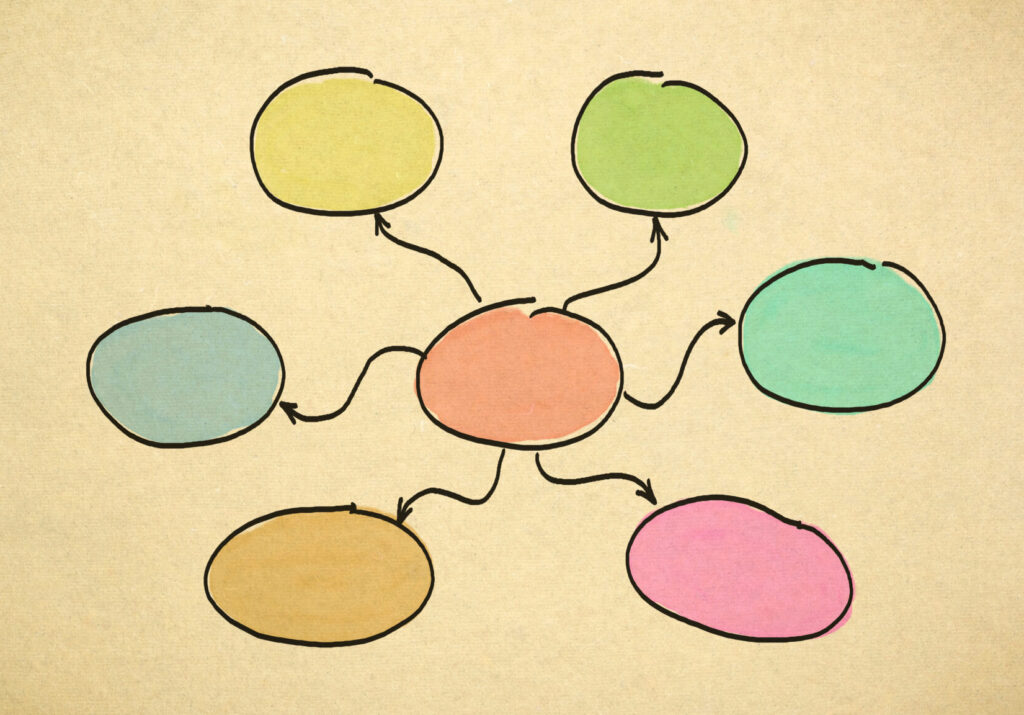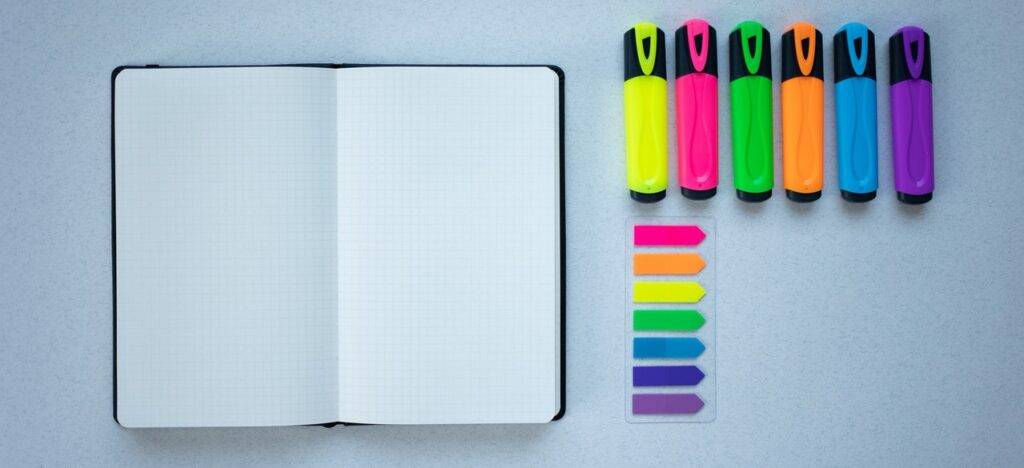Unsure how you should go about creating study notes for your QCAA Humanities and Social Sciences subjects?
We’ve got a whole range of tips to help you effectively make study notes for these types of subjects. Essentially, you can use this guide as a check list for what you should include in your notes!
Let’s dive in!
Why should you make study notes for QCAA Humanities and Social Sciences subjects?
Tip 1: Sources, sources, sources
Tip 2: Create Mind Maps
Tip 3: Make Up Acronyms
Tip 4: Incorporate Flow Charts
Tip 5: Keep Your Notes Organised as You’re Writing Them
Tip 6: Add Colour!
Tip 7: Write about the Structures of Your Assessments
Tip 8: Consistency is Key
Tip 9: Use the Syllabus
Why should you make study notes for QCAA Humanities and Social Sciences subjects?
Humanities is an area where the way you’ve created your notes can be the different between you achieving a C or an A.
Subjects such as the histories, Geography, Business and Economics are full of terminology and details that can become confusing if you haven’t absorbed all the content.
To make things easier, we’ll guide you through our best tips for writing notes for all of your Humanities and Social Sciences subjects.
Tip 1: Sources, sources, sources
There is nothing more interesting and hilarious than history, so you might think it is extremely easy to memorise and to keep in mind details about certain historical events — but don’t be fooled. History in the QCAA isn’t just about dates and events, but mostly about sources.
Make sure you pay close attention to the motives, person, character and context, as well as the intended audience and purpose of the source. Focus your notes on these aspects in relation to a historical event rather than the historical event itself, as this will yield you the most marks.
This is because the assessments are all about analysing sources rather than recalling knowledge — although that isn’t to say that you can forget to take notes on historical events.
Likewise, when writing up Business and Economics assignments, sources and their perspectives are vital things to take note of, especially if you are arguing for a specific point.
Geography, although still dealing with sources, has a more content-based requirement, in the sense that you’ll be making notes about terminology and natural processes for knowledge tests, as well as sources for your investigations. But in whichever way you look at it, sources are especially important to take notes about for all the different Humanities subjects.
Tip 2: Create Mind Maps
Often, you’ll have to take notes about events that are caused by multiple factors and have multiple repercussions. Whether it’s World War 1 or the 2008 Financial Crisis, you’ll always look at cause and effect — concepts that most often are not linear.
So learning to make good quality mind maps is key in terms of you being able to record all the information you need to ace your assessments.
A good mind map has a central theme, or event, as well as radiating concepts around it that simulate the connections between your central event and the causes and effects. Make sure you check out how to make a proper mind map, so that it can be a tool always at your disposal when making notes for your Humanities subjects.
Are you more of a humanities student and can’t stand Maths? Here’s how to know what level of QCAA Maths is the right fit for you.
Tip 3: Make Up Acronyms
A very simple technique, but an absolute lifesaver when it comes to subjects like History. For example, you’ll be required to analyse sources in depth, which can be daunting at first if we just consider the word ‘Analyse’.
However, an example of how you can go about analysing a source with an acronym is COMAP:
Using acronyms like these to remember key concepts, processes or events is an absolute lifesaver when you have to engage in formulaic essay writing or researching.
Best of all, this tip does not only apply to the Humanities, but it can be transferred to any subject you have chosen to take up during your QCAA studies.
Does your school make our top ATAR schools list in Brisbane? Find out here!
Tip 4: Incorporate Flow Charts
You’ll mostly use this in Economics and Business, but it can still be useful in History sometimes.
Flow charts are a way to organise events that have direct succession.
For example, you might be studying the interaction between tertiary and secondary sectors of the economy, meaning that you’ll have to represent either cash flow or product flow from one sector to another.
This is just the tiniest example as to how you can use flowcharts. Make sure you can create yours in a simple orderly way.
Tip 5: Keep Your Notes Organised as You’re Writing Them
Kind of an obvious tip, but one that everyone forgets almost all the time. You must be able to read your notes at a later time — that’s kind of what the purpose of you writing them in the first place is!
You can often get sidetracked out of your study focus when you are desperately trying to decipher notes that look like Egyptian hieroglyphics. Making sure your notes make sense is key to having productive, less time-consuming study so that you can get back to watching TikToks.
Divide your page up so you have a section dedicated to lesson notes, a section dedicated to assessment info, and a small section dedicated to homework notes. This way all the information is easy to find.
If you are taking notes on your laptop, try to highlight certain parts and use page breaks, instead of just writing huge paragraphs that you’ll never be bothered to read anyway!
Tip 6: Add Colour!
Yes, you must. With subjects like history a black and white page with writing sometimes is too much to handle, and can make your eyes fall out of your head.
Adding colour to your notes keeps what you are reading easier to scan through and much more interesting to do, even in the moment when you are taking notes.
Spending five minutes highlighting and circling important things in class can save you hours of boredom at home.
Tip 7: Write about the Structures of Your Assessments
This part is where most students usually fail to make notes on, and it ultimately ends up costing them a huge portion of their marks.
Assessments for Humanities subjects are built around the type of response you have to provide. Getting this wrong sets you up for failure or a lot of missed marks.
Take as many notes as possible on the structure of the format you’re having the assessment on. Feel free to experiment and do your own research, as sometimes these parts are missed in class due to the sheer amount of content you have to go through.
Jot down the features of each structural component, including word count, style, and must-include parts.
Tip 8: Consistency is Key
Never forget to make notes in class. The more notes you make in class, the less time you’re going to spend at home making the same notes. It’s a no-brainer, but it’s something we tend to replace with “I’ll do it later”.
Want some more resources to help you in Term 3 of the QCE? Check out our Content Guide for Term 3 of the QCE Here!
Tip 9: Use the Syllabus
The syllabus for each of your subjects will tell you exactly what you need to know for each unit and each topic!
Use it as a guide to see what you do or don’t already know, and fill in the gaps where necessary by referring to your textbook and other resources.
Looking for other QCAA resources?
Check out some of our other articles related to the QCAA below:
- Everything You Need to Know About the QCE and ATAR
- The Essential Guide to Applying for University Through QTAC
- The Ultimate List of QCAA Cognitive Verbs That You Need To Know
- What You Should Consider When Selecting Your QCAA Subjects
- What Are QCE Points and How Many Do You Need?
- How to Stay Motivated Throughout the Year During the QCE and Avoid Burnout
Are you looking for some extra support with studying for the QCAA?
We have an incredible team of QLD tutors and mentors!
We can help you master the QCAA syllabus and ace your upcoming assessments with personalised lessons conducted one-on-one in your home or online!
Looking for Humanities and Social Science tutoring? We can help with our expert Brisbane tutors!
We’ve supported over 8,000 students over the last 11 years, and on average our students score mark improvements of over 20%!
To find out more and get started with an inspirational QLD tutor and mentor, get in touch today or give us a ring on 1300 267 888!
Vittorio Manessi is an Art of Smart tutor based in Queensland studying environmental science. He was one of the first Year 12 students to study under the new ATAR system in Queensland. He enjoys Maths, Science, English and Ancient History and is keen to share his knowledge of the QCE by making awesome resources.






